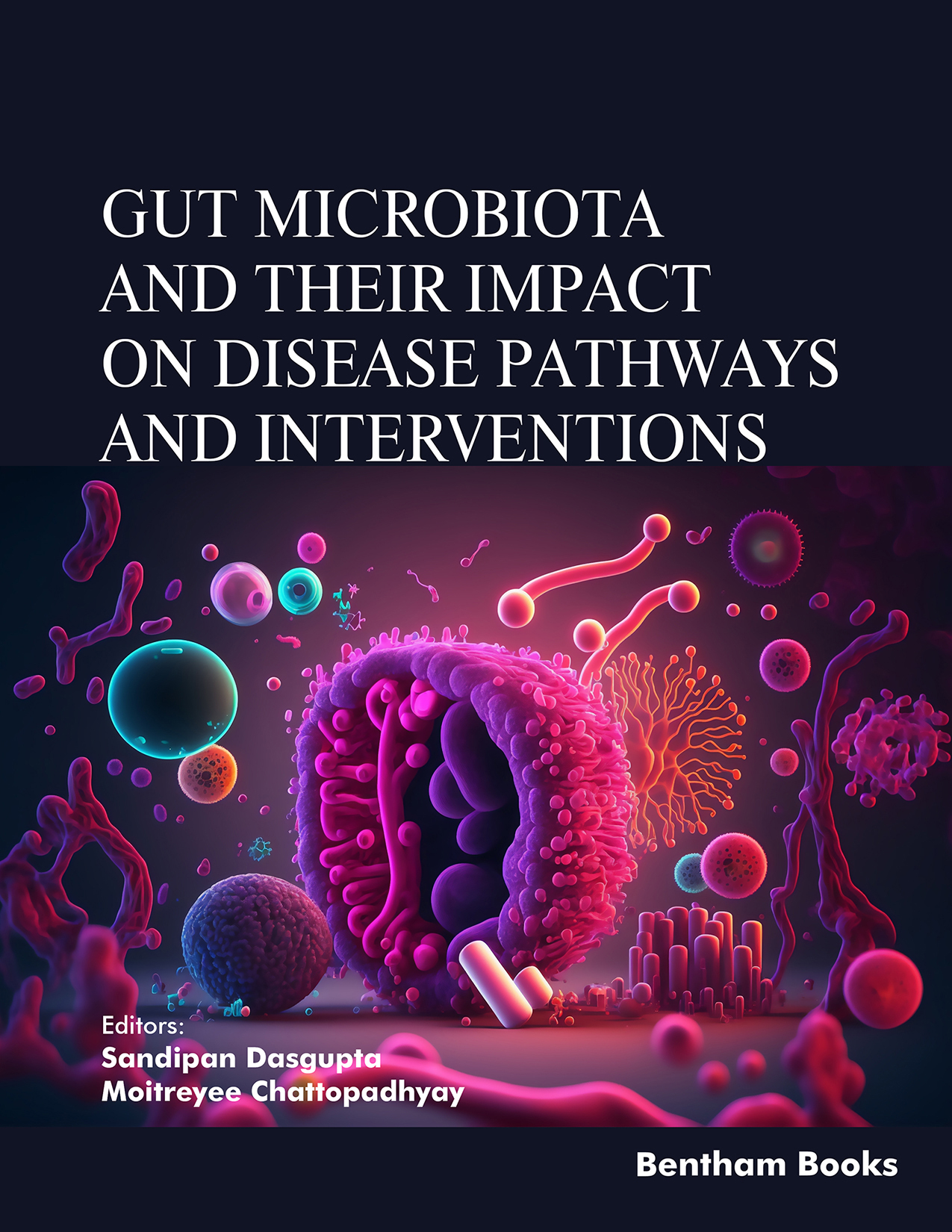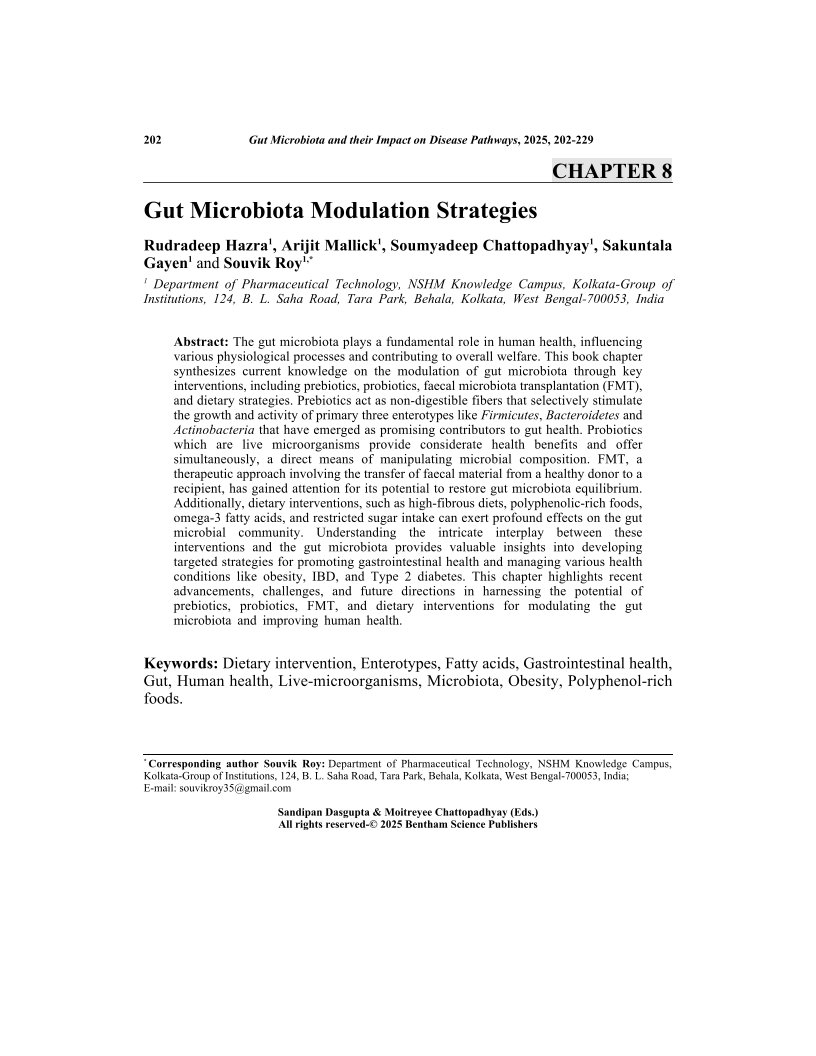Gut Microbiota Modulation Strategies

- Authors: Rudradeep Hazra1, Arijit Mallick2, Soumyadeep Chattopadhyay3, Sakuntala Gayen4, Souvik Roy5
-
View Affiliations Hide Affiliations1 Department of Pharmaceutical Technology, NSHM Knowledge Campus, Kolkata Group of Institutions, 124, B. L. Saha Road, Tara Park, Behala, Kolkata, West Bengal-700053, India 2 Department of Pharmaceutical Technology, NSHM Knowledge Campus, Kolkata-Group of Institutions, 124, B. L. Saha Road, Tara Park, Behala, Kolkata, West Bengal-700053, India 3 Department of Pharmaceutical Technology, NSHM Knowledge Campus, Kolkata-Group of Institutions, 124, B. L. Saha Road, Tara Park, Behala, Kolkata, West Bengal-700053, India 4 Department of Pharmaceutical Technology, NSHM Knowledge Campus, Kolkata-Group of Institutions, 124, B. L. Saha Road, Tara Park, Behala, Kolkata, West Bengal-700053, India 5 Department of Pharmaceutical Technology, NSHM Knowledge Campus, Kolkata-Group of Institutions, 124, B. L. Saha Road, Tara Park, Behala, Kolkata, West Bengal-700053, India
- Source: Gut Microbiota and their Impact on Disease Pathways and Interventions , pp 202-229
- Publication Date: April 2025
- Language: English
Gut Microbiota Modulation Strategies, Page 1 of 1
< Previous page | Next page > /docserver/preview/fulltext/9789815324549/chapter-8-1.gif
The gut microbiota plays a fundamental role in human health, influencing various physiological processes and contributing to overall welfare. This book chapter synthesizes current knowledge on the modulation of gut microbiota through key interventions, including prebiotics, probiotics, faecal microbiota transplantation (FMT), and dietary strategies. Prebiotics act as non-digestible fibers that selectively stimulate the growth and activity of primary three enterotypes like Firmicutes, Bacteroidetes and Actinobacteria that have emerged as promising contributors to gut health. Probiotics which are live microorganisms provide considerate health benefits and offer simultaneously, a direct means of manipulating microbial composition. FMT, a therapeutic approach involving the transfer of faecal material from a healthy donor to a recipient, has gained attention for its potential to restore gut microbiota equilibrium. Additionally, dietary interventions, such as high-fibrous diets, polyphenolic-rich foods, omega-3 fatty acids, and restricted sugar intake can exert profound effects on the gut microbial community. Understanding the intricate interplay between these interventions and the gut microbiota provides valuable insights into developing targeted strategies for promoting gastrointestinal health and managing various health conditions like obesity, IBD, and Type 2 diabetes. This chapter highlights recent advancements, challenges, and future directions in harnessing the potential of prebiotics, probiotics, FMT, and dietary interventions for modulating the gut microbiota and improving human health.
-
From This Site
/content/books/9789815324549.chapter-8dcterms_subject,pub_keyword-contentType:Journal -contentType:Figure -contentType:Table -contentType:SupplementaryData105

